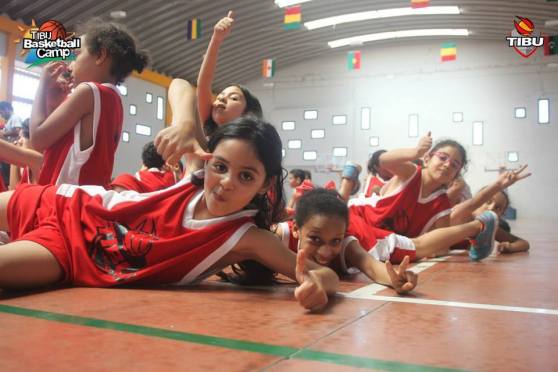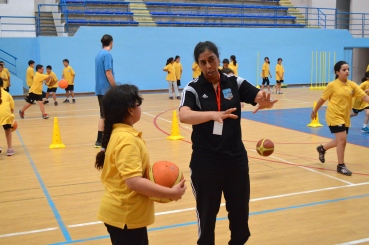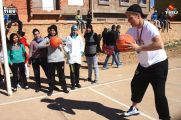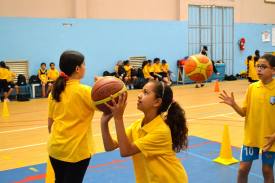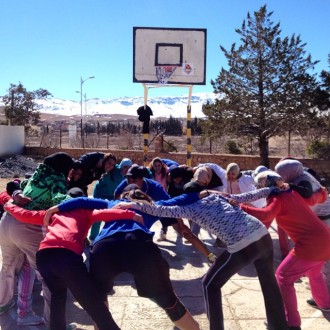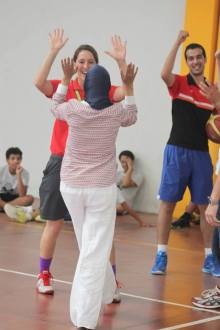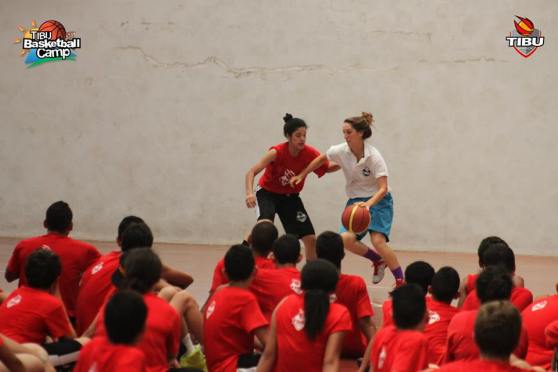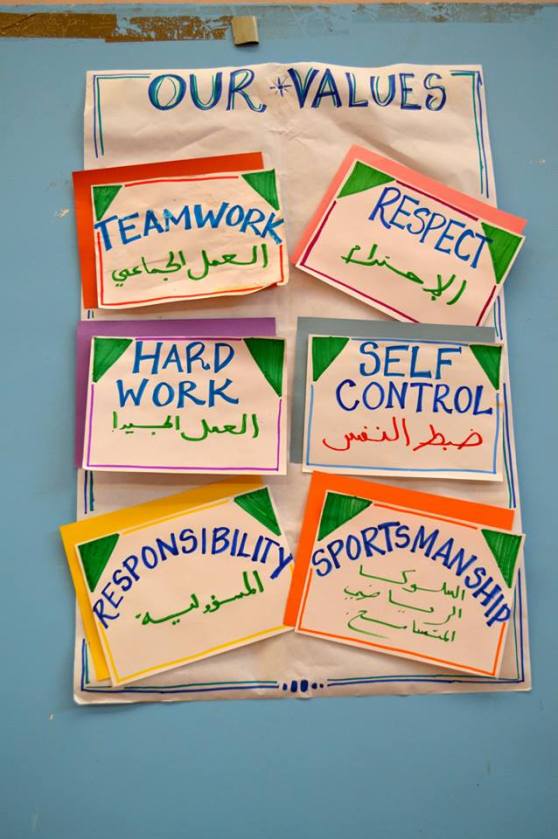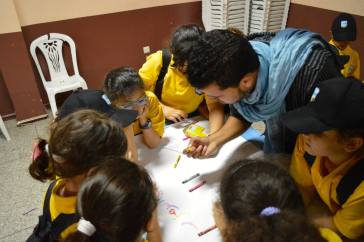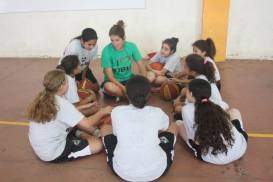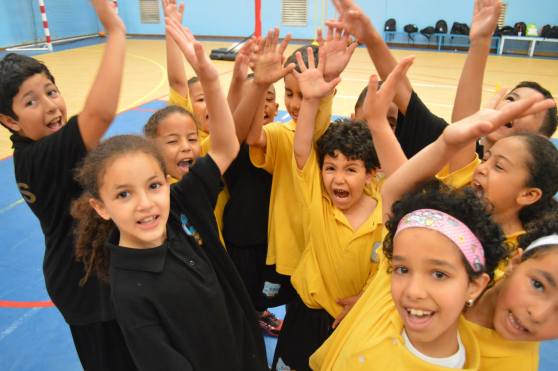Jamie Kreindler is a first year Peace Corps volunteer. She came to Morocco after completing her Bachelors of Arts in Dance and Psychology in 2014. In addition to her new project, Jamie has been active in the Supporting People With Special Needs committee and the Model United Nations in Morocco project.
She recently became involved in a youth and gender-targeted development initiative in her site, and shared her experiences with GAD:
“Empowering Unemployed Women and Youth through Entrepreneurship” is the title of a new, gender-focused ongoing project in the Fes-Meknes region. It began in partnership between Greenside Development Foundation (GDF) and the Middle East Partnership Initiative (MEPI) with the thinking that “economic initiative drives participation in civic society, leading to stronger communities, new jobs, and a sense of dignity and activism.” The goal of the project is to reach 1,200 unemployed women and youth in 6 cities in the Fes-Meknes region of Morocco: Fes, Azrou, Sefrou, Imouzzer-Kandar, Ribat El Kheir, and El Menzel. Every two weeks over the next five months, trainers in each city will train a group of 20 women and youth, totaling 200 people per city by the completion of the trainings.
Ali Aaouine, the co-founder of GDF, was also the host brother for PCVs Steve and Jennie Williams during their Community Based Training (CBT) in Imouzzer-Kandar from January to March 2015. Near the end of CBT we found out our site placements- Steve and Jennie in Ribat El Kheir and myself in El Menzel. I was excited not only to have Steve and Jennie as my closest Peace Corps neighbors but also to learn about GDF’s exciting upcoming initiative in our communities. Hearing about GDF through Steve and Jennie was the beginning of my involvement with the association.
Initially hearing about the project 8 months ago turned into summer meetings at the Youth Centers in El Menzel and Ribat El Kheir as well as GDF’s office in Immouzer-Kandar. I started to learn more about GDF, their work, and their mission. The vision of GDF is to “alleviate poverty through empowering sustainable youth employment. [It] is a not-for-profit organization pledged to fighting poverty in the Middle East North African (MENA) region. Founded in Seattle, WA in 2010, GDF is dedicated to the idea that cyclical poverty can only be addressed through a combination of education, access to capital, and partnership with communities.”
In 2013, Aouine was working with PCV Bo Ghirardelli to serve the youth of Imouzzer-Kandar. They had the idea to create an association to support youth entrepreneurs in the region through training, mentoring, and funding. At this time, Aouine was awarded an AEIF grant through the US Department of State. This grant is given to alumni of USG exchange programs and allowed GDF to launch 35 microenterprises in Imouzzer-Kandar. Over the past two years, GDF has continued to create new businesses and employ Moroccan youth in the region.
Last month marked the official launch of GDF and MEPI’s latest project “Empowering Unemployed Women and Youth through Entrepreneurship.” I worked closely with the trainer in El Menzel and other local volunteers to hang up banners, pass out flyers, talk and talk some more with community members, and visit surrounding villages in effort to spread the word about the project. On October 31, 2015, the Opening Ceremony for the project took place in Immouzer-Kandar. Representatives from MEPI, local authorities, GDF’s team, a handful of PCVs, and many community members were in attendance. The director of El Menzel’s Youth Center even showed his support!
This week the six trainers in Fes, Azrou, Sefrou, Imouzzer-Kandar, Ribat El Kheir, and El Menzel will train the first group of women and youth. The trainers will apply their in-depth business planning and entrepreneurship training to the training groups. Trainings will focus on how to start a project in terms of financial, technical, and human resources. The trainees will receive information about how to receive credit, how to market a project, and more. Furthermore, the trainees will be mentored by the trainers in order to start their new microenterprises. At the end of the project, participants will showcase their business models during a Youth and Women Entrepreneur Exhibition day.
In El Menzel, the beneficiaries of “Empowering Unemployed Women and Youth through Entrepreneurship” range from button makers to traditional craftsmen to Master’s Law students to electricians to widowed mothers and everything in between. El Menzel is the smallest of the six cities, so one of the challenges we face is reaching the goal number of 200 women and youth. However, the team of volunteers is working hard every day to build relationships and connect with community members. I see this challenge as an opportunity to impact the community in a positive, lasting, and transformative way.
The website is still under construction, but for more information about the project, read here.














